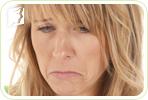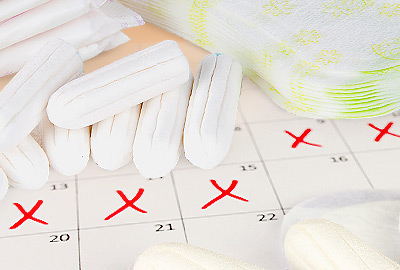
When you experience menopause too young, you are experiencing something called premature menopause, a condition that affects up to 1 in 1000 women. It occurs when the ovaries stop releasing eggs, or menopause is reached before the age of 40.
The woman may experience a variety of symptoms which will eventually result in a loss of fertility.Premature menopause can be traumatic to go through, and can have an adverse effect on your emotional and physical well-being. Read on to find out more about menopause age, its causes, symptoms, and possible treatments.
Causes
Early menopause can be caused by various factors. These include:
Surgery. Early menopause can be an independent effect of a woman having her ovaries removed or of a hysterectomy.
Chemotherapy and radiation, as treatments for cancer, may impact the menstrual cycle and be the cause.
Premature ovarian failure. Premature ovarian failure occurs when the ovaries stop producing eggs spontaneously. Researchers are unable to pinpoint exactly why this happens in some women. Possible causes include chromosome defects, heredity, and autoimmune diseases.
Poor nutrition. A lack of proper nutrition can result in menopause occurring earlier in a woman's life than it otherwise would have.
Symptoms

The first most common symptom of early menopause is irregular periods. Irregular periods can also be a symptom of many other conditions; if you are concerned about irregularities in your menstrual cycle, talk to your doctor. Other symptoms of early menopause include:
- Hot flashes
- Night sweats
- Vaginal dryness
- Loss of libido
Treatments

Many of the treatments for early menopause are similar to those that may be used by women over 40 for menopause. Effective treatments include changes in lifestyle to ease difficult symptoms, herbal remedies to balance fluctuating hormone levels, and hormone replacement therapy (HRT).
HRT involves the introduction of external hormones into the body, and it can tackle the symptoms and effects of early menopause on a hormonal level. It has been associated with increasing the risk of cancer, but has been effective in helping with premature menopause symptoms.
Sources
- BMJ Group. "Menopause: What is it?" Patient Leaflet. 2007.
- Hopkins, Virginia. Lee, John R. M.D. What Your Doctor May Not Tell You About Menopause. New York: Warner Books Inc., 1996.
- Love, Susan M.D. Menopause and Hormone Book. New York: Three Rivers Press, 2003.
- Martin, Raquel. The Estrogen Alternative. Rochester, VT: Healing Arts Press, 2000.



